Connecting (II)
Connecting with you through answers to questions on religion, fascism, and polyamory
A few weeks ago, I left a link for readers to leave philosophical/interesting questions for me to answer. I happen to love a good dialogue and think monologues can get monotonous really fast. I had a ton of responses, but could only answer the ones that honored the invitation.
From questions about religious beliefs to my stance on polyamory, you guys made me rub my two brain cells against each other.
While it’s a bit on the long side, you don’t have to read it all in one go. Try one question and one reply, and come back later for more. I know you will enjoy reading this as much as I enjoyed writing it.
Cos…?
What you are asking is if I believe in a personal god.
“In the scriptures of the Abrahamic religions, God is described as being a personal creator, speaking in the first person and showing emotion such as anger and pride, and sometimes appearing in anthropomorphic shape.”
No, I find the concept of a personal god to be the most ridiculous of all the definitions of deity. I think it’s a man-made higher power because it takes the likeness of man.
And this definition of godhood happens to be the most dominant, which is representative of human narcissism. I think when you define concepts, you restrict them, and defining a deity puts limits on what that deity can be, which contradicts the omnipotence of Yahweh, for example. But life is full of contradictions and Heisenberg, so…
But beyond a personal god. Do I believe in a deity? I do not really care about metaphysics. I believe there are some things I cannot know, and I do not have the scientific or philosophical education to be at the forefront of answering those questions.
I am not a dualist.
I believe everything is everything. Everything that exists, whether we can perceive it in default waking consciousness or with our five senses, whether we can explain it with our current science, or whether we have never experienced it before, is natural. God is all
This is the post they are referring to.
I used to be pretty frustrated for a good part of my early adulthood, and still get frustrated from time to time when life forces me to engage in spaces that I didn’t choose. However, when I get to decide the people I interact with, I place myself in an intellectual bubble.
As for changing, I would say fundamentally, I cannot change. While my interests, philosophies, and tastes may evolve over time, the cognition and emotional predilections that drive them are pretty much the same. For a very long time, I have understood that I cannot change myself in substantial ways, so I do not aspire to fundamentally change other people.
However, with my work, beginning with my YouTube channel, I focus on pushing our mentality forward. Still, I know that most of the interest and agreement with expressed ideas comes from people who already feel or almost feel the same way. Still, I try to be accessible because even if I can move the needle just a millimeter, not substantially, then our collective mentality is better by that millimeter.
My brother and I recently discussed this subject for a (hopefully) future interview-style entry.
I think that, like most things, there is an interplay of opposing forces.
We are born with programming—the genetic code. The way we look, for example, depends on that code. Also, if we are born into an environment where we are unloved, poorly fed, and have to spend hours in the sun without access to sunscreen and other replenishing skincare products, we will look a certain way. The same goes for our minds and lives in general.
We do not get to choose our genetic makeup or the family, country, and societal values we are born into. We do not get to choose other people’s actions and reactions, and the systems and structures that precede us. You can call that destiny, but I think that is too final.
I think we have tendencies or likelihoods.
We are more likely to make certain choices because of our personalities and situations. But more often than not, we do get an opportunity to choose in that instant: between reacting with aggression and being silent, between being a dropout and being a lawyer. The choices are just much more difficult to make for a person who comes from a remote village with no finances than for someone who is part of a family of lawyers.
Okay, fantastic two-part question
Hmmm… between early/mid 2020 and now. I can’t think of any at the moment.
As for the “one sentence”:
Love one another
Omg… Jesus got it right!
No, I do not think fascism is inevitable. We never spend too long in it because it is very unsustainable.
Let’s define fascism:
Fascism is a far-right, authoritarian political ideology that emphasizes extreme nationalism, centralized autocratic governance, and the suppression of opposition. It prioritizes the nation, often defined by race or ethnicity, over individual rights and freedoms.
I think fascistic systems/thoughts are concerned with hating unchangeable differences in others and creating systems of exclusion that a centralized, autocratic government backs.
Yes, it does have a lot to do with control.
Wanting only our vision of natural or good to exist. But like I said in my post about differences, you cannot get rid of them. Even if you wipe out all the opposition, new divisions will crop up. As long as you can’t embrace diversity in being and thought, you will have to kill everyone because even within your key to power, the military in this case, dissent will crop up.
I think society does us a disservice by defining success in a specific way—essentially in a way that benefits capitalism.
Success is how much you feel you have achieved what you value. What you value is innate and socially engineered (so yes, capitalistic values will affect you even in rebellion).
On an individual level, I can’t speak for other people’s purposes; mine, I think, is to learn and apply that learning to make the world a more beautiful, equal, and loving place. At a more universal, molecular level, life seems to be bent on creating a diverse world. I’m looking at DNA replication, mutations, and viruses.
Another great religious question!
I think Jesus actually existed and was ahead of his time, like the Buddha. According to the gospels, I generally agree with what Jesus stood for. However, I do not believe he was the son of God and think his life and person have been mythologized.
As for what I think happens when we die:
I think when we die, we (the mind/matter) decay and become part of other things that exist. We (the organism) don’t even have to die. On a cellular level, we constantly die and regenerate. Depending on how specialized the cell is and the organism’s age, the regeneration is on a spectrum of perfect to full of errors.
This decay is aging when we are alive. When we die, we might end up as part of a tree, part of the soil, or part of the cat food because a tuna ate a worm that ate our eye.
As for having a religion, I believe in freedom of religion. I want us to accept that they are faith-based and personal, so that we are more tolerant of others’ beliefs. I think religions are culturally filtered and interpreted manifestations of universal experiences. I also appreciate the sense of hope and community they offer in an easily nihilistic world
This question feels like a tautology because you started it with, “if you had the same life.” If I had the same life, I would have the same life, including being a murderer and serving a life sentence. I wish you had phrased it better because there’s a good question in there.
My guiding philosophy in life is that divisions are false.
I like having relationships—all kinds. I find that I grow the most when another sentient entity challenges my conceptions and habits. This happens most intensely when the relationship is intimate.
I’ve actually experimented with it. I do not think humans are monoamorous—preferred term to monogamous because we already don’t do that. Monogamy would mean having one mate for life.
If we were monoamorous, we wouldn’t need whole systems and institutions enforcing it. However, we are jealous and possessive, so that is why we enforce it. I think everyone should be free to find love and do what they can while causing the least possible pain to themselves and others. Unfortunately, treading the road less travelled has its own pain.
Author’s Note:
Thank you for making it to this point. Did you enjoy it? Let me know with a like.
Leave a comment agreeing or disagreeing with what I said. I’m all about the conversation.
Should I do something like this again in the future? If yes, leave a question on the link.
Currently obsessed with the song: Normal by Hector Gachan





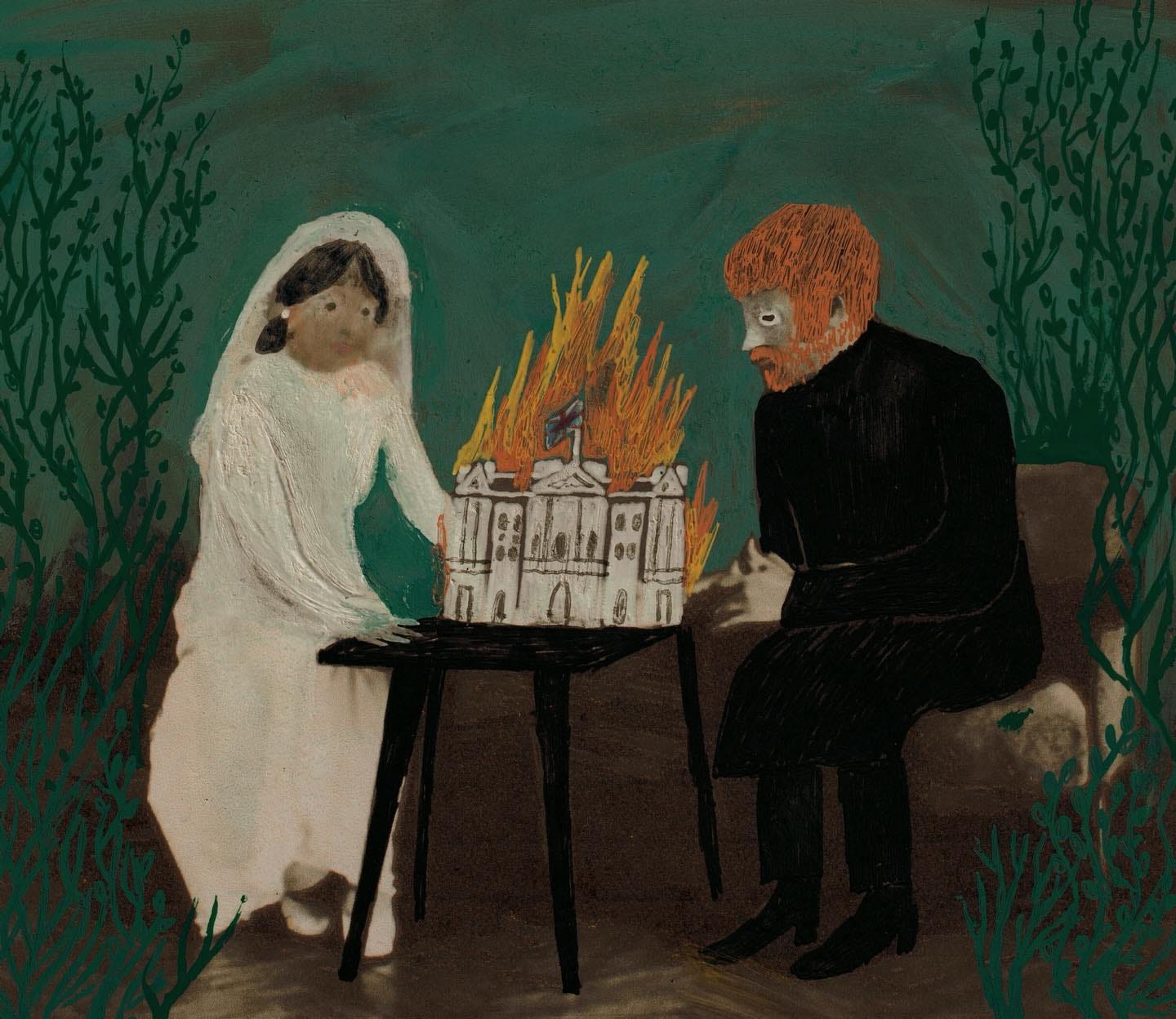
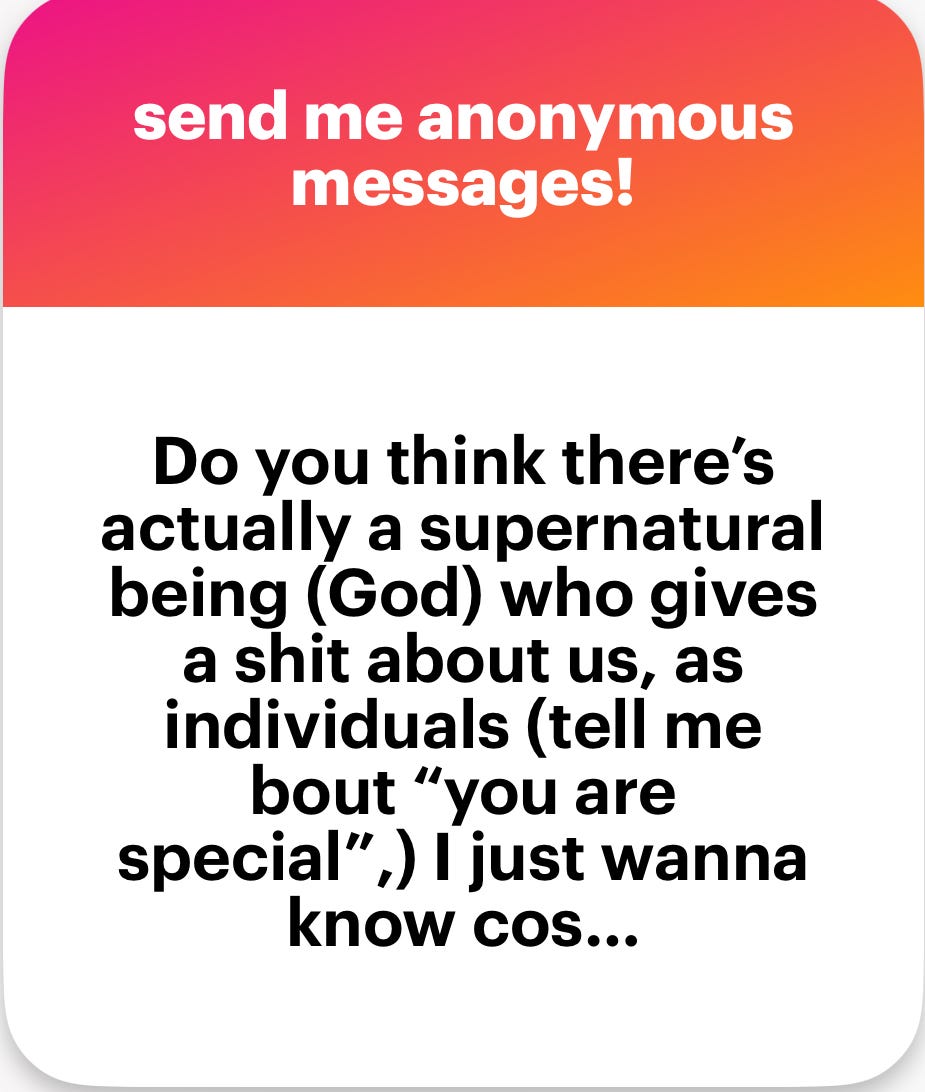


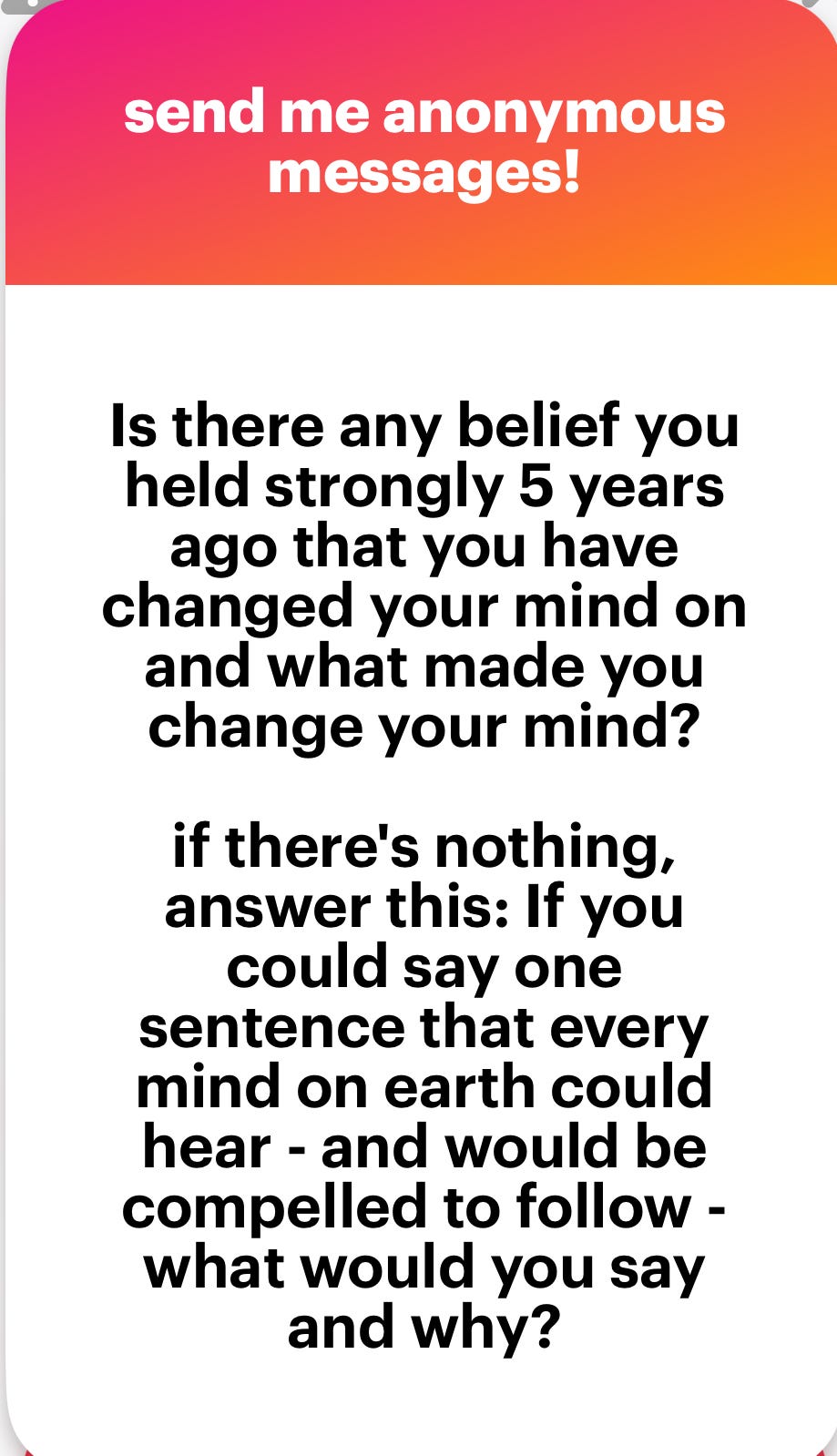
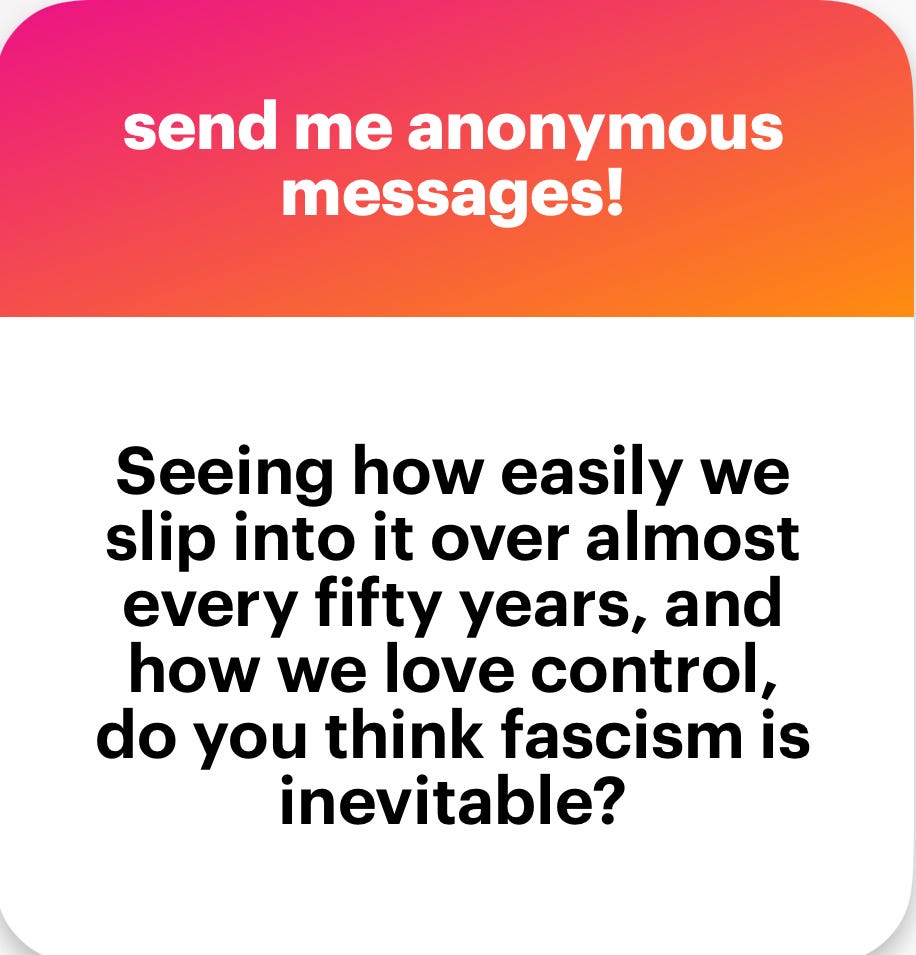


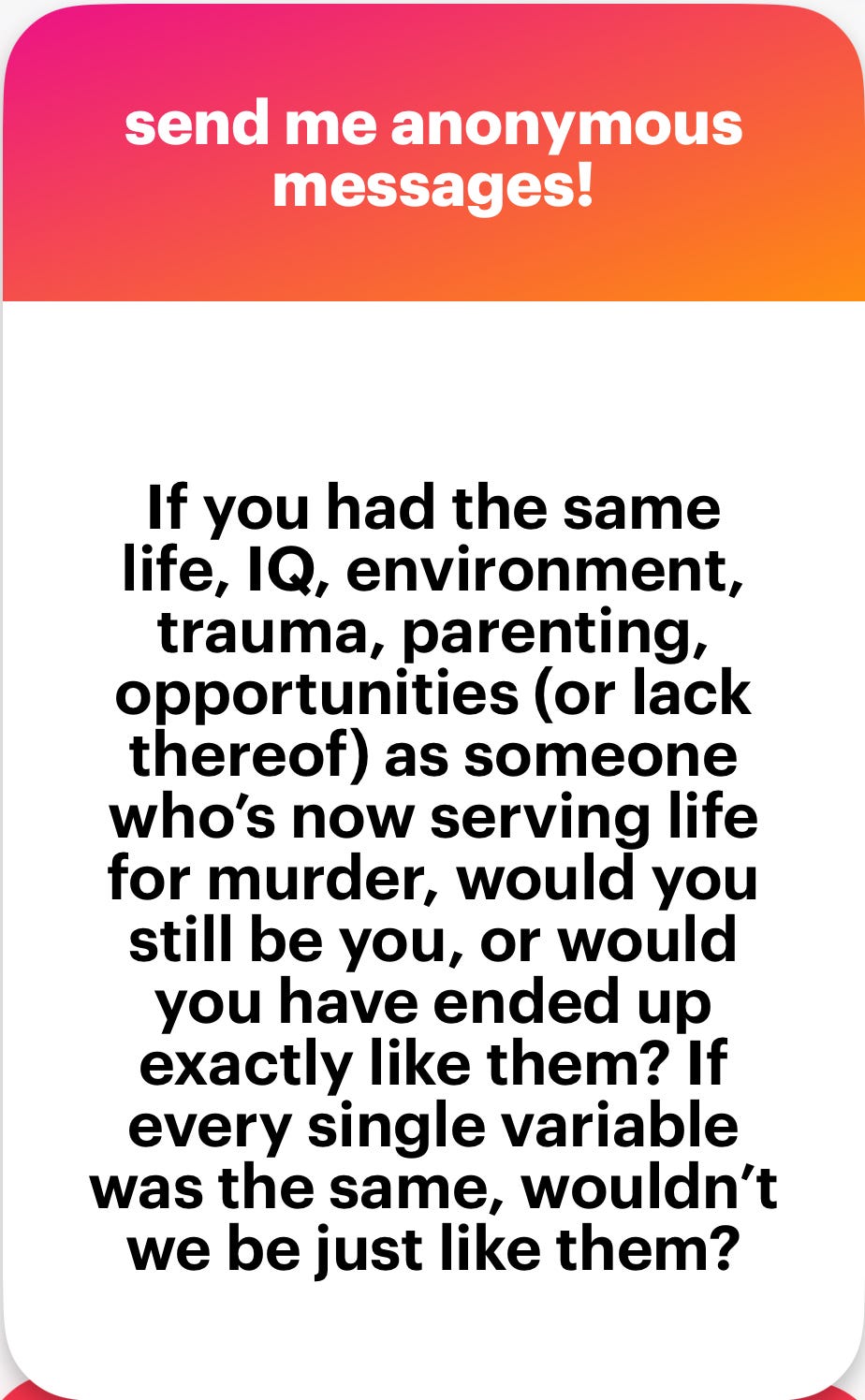
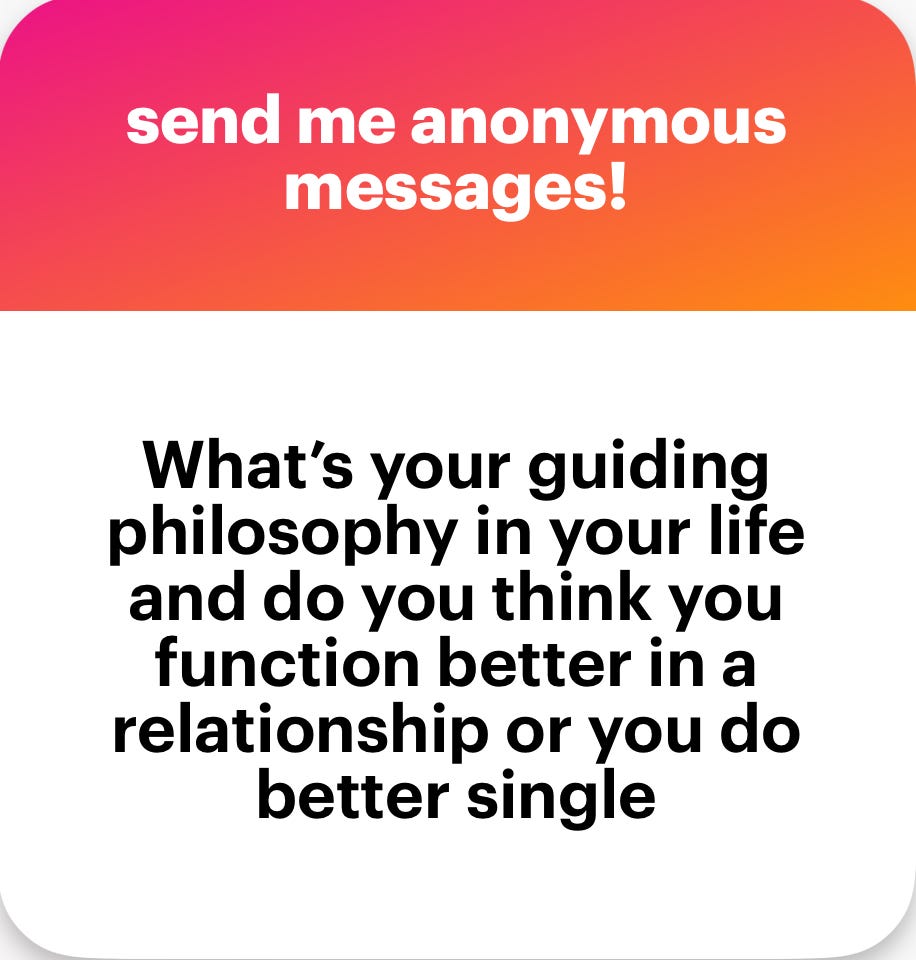

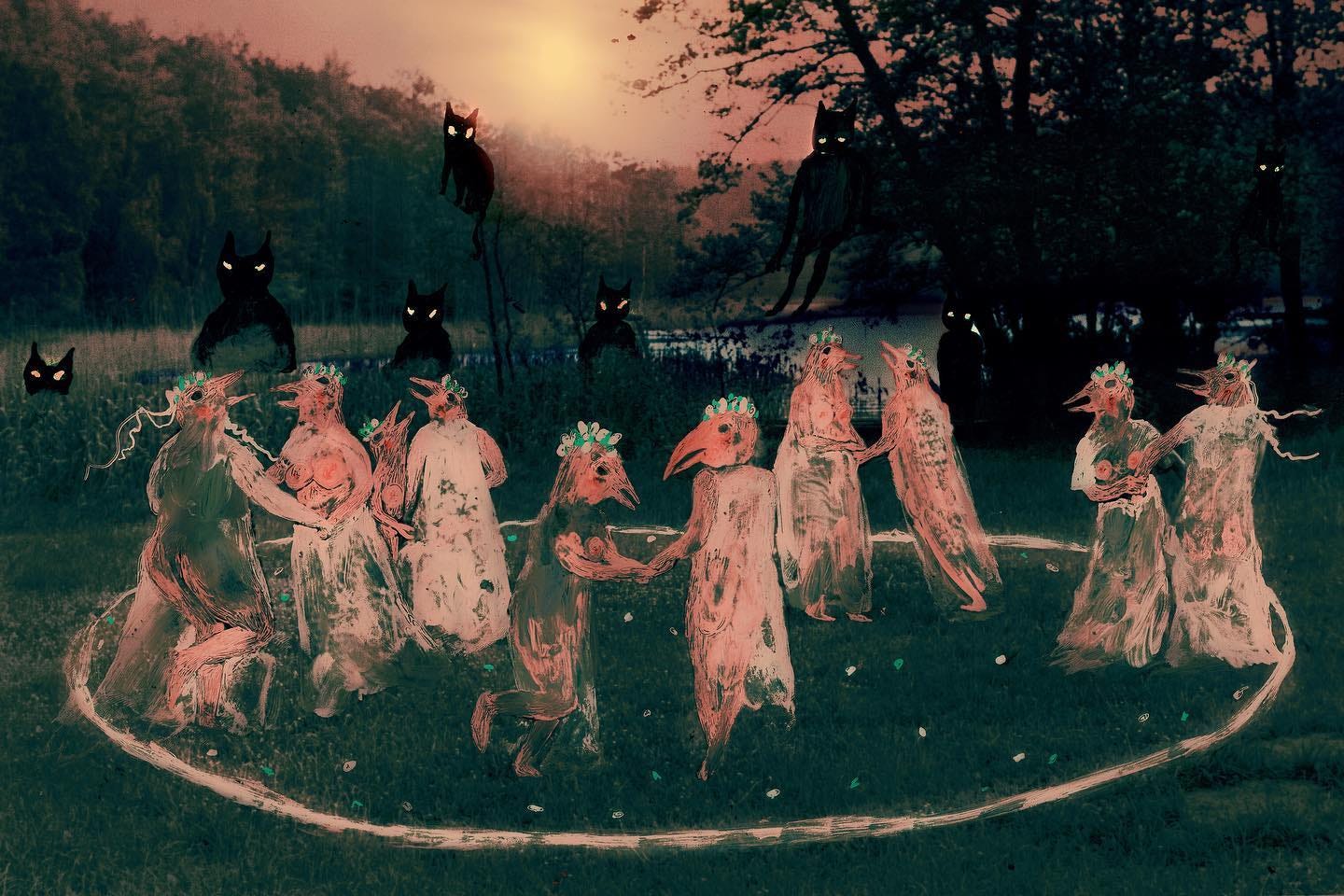
On life being bent on creating diversity, this is something I wholly agree with. I have for long believed that life is a game that plays itself and it's only goal is that there's always life. Diversity is sought because it tries to ensure that whatever the conditions of the environment, there would exist life that can if not thrive, survive it.